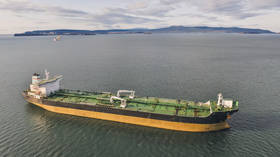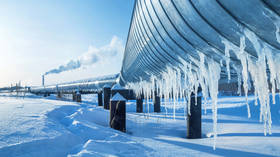Russian oil price cap has ‘largely failed’ – Politico

The price limit imposed by the G7 and EU countries on Russian seaborne oil sales has essentially failed, Politico reported on Tuesday, citing new research.
The mechanism was agreed last year and bans Western firms from providing insurance and other services to shipments of Russian crude unless the cargo is purchased at or below the $60-per-barrel price cap. Similar restrictions were introduced in February for exports of Russian petroleum products. The measures were intended to substantially reduce Moscow’s energy revenues.
According to new analysis from the Center for Research on Energy and Clean Air (CREA), shared with Politico, over the last year the scheme has cost the Kremlin €34 billion ($37 billion) in export revenues, the equivalent of around two months’ earnings this year. However, that amount is “far less than those who designed the rules had hoped,” the report said, adding that the impact had been felt most intensely in the first half of 2023 before starting to fade.
Russian oil now consistently sells for more than the $60-a-barrel limit, Politico wrote.
“The impact of the price cap has been limited due to inadequate monitoring and enforcement,” Isaac Levi, who leads CREA’s work on Europe and Russia, was quoted as saying. He added that Western nations have failed to crack down on sanctions loopholes.
According to the report, the shortfall is partly due to traders simply ignoring the price ceiling, with Russian oil selling for roughly $70 a barrel.
CREA researchers found that around 48% of Russian oil cargoes were carried on tankers owned or insured in G7 and EU countries. In theory, the price cap should apply to these vessels, the report said, adding that in practice few operators have been targeted.
The researchers further stated that a “refining loophole” has undermined Western efforts to limit Russian exports, as countries such as India have ramped up energy purchases from Moscow.
EU countries are currently negotiating new ways to tighten enforcement of the cap as part of their 12th package of sanctions against Russia, according to a draft seen by Politico. Restrictions could reportedly include new obligations for traders and ship charterers to provide data on deliveries.
For more stories on economy & finance visit RT's business section













